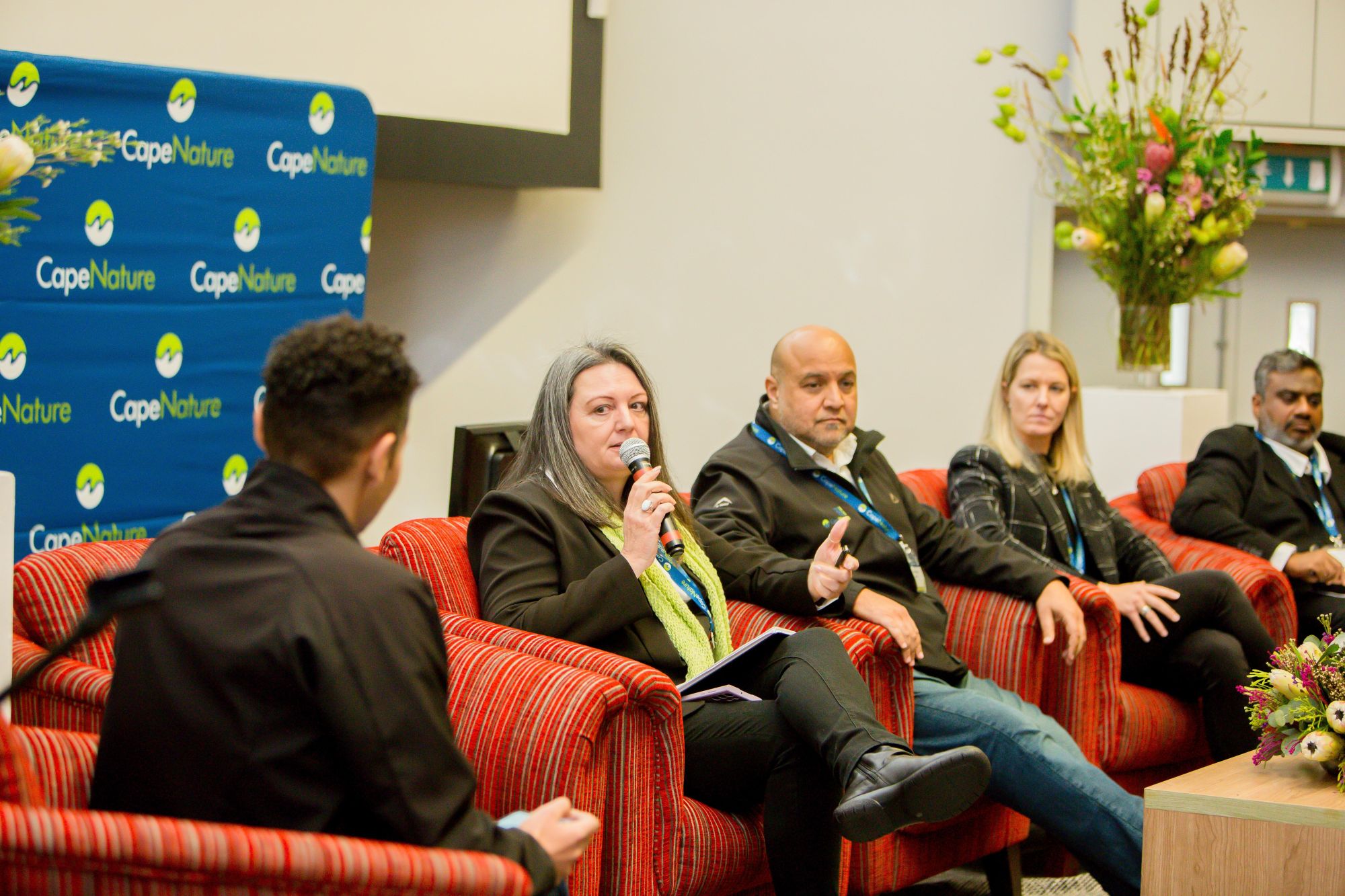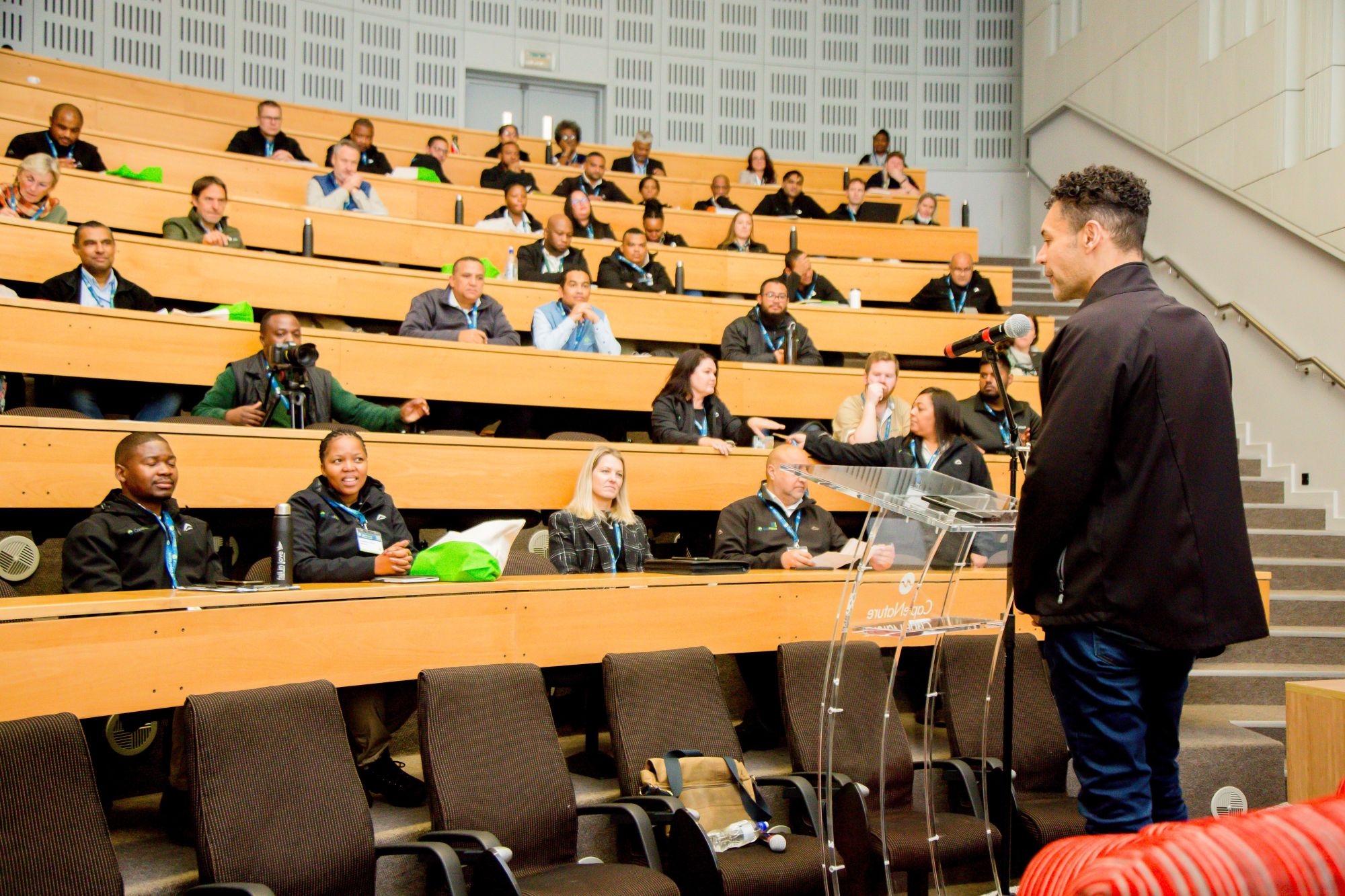
CapeNature Conservation Review 2024 brings excellence in sustainable conservation practices to the forefront

CapeNature showcased its achievements realised through its dedication to fostering sound governance, innovative eco-tourism offerings, successful conservation operations, and exceptional biodiversity protection at its CapeNature Conservation Review 2024.
The event, held at the UWC Life Sciences Auditorium on 27 and 28 June, highlighted the Entity’s successful operations covering the 2023/24 period, aligned to the theme “Journey to a Greener Tomorrow, Together.” A number of CapeNature’s implementation partners also attended the event, showcasing delivery on collaborative projects.
The golden thread throughout the event and central to the theme was an emphasis on the successful partnerships the Entity has cultivated with stakeholders. Lively panel discussions featuring both CapeNature and partner panellists on several conservation and ecotourism related topics kept the audience captivated.
Some of the Entity’s highlights for the period under review include adding over 45 000 ha to the protected area estate, 11 biodiversity stewardship site agreements were signed, tourism products grew by 133%, and the release of the fifth rendition of the five-year State of Biodiversity Report.
The State of Biodiversity Report 2023 provides a detailed synopsis of the changes and trends over the 2019-2023 reporting period as they relate to the conservation status of species and ecosystems, biodiversity crime, fire, invasive alien species and protected area expansion.
With increasing population density, financial constraints and demand on natural resources, sustainable practices, partnerships and innovative solutions are essential for conserving ecosystem services.
Western Cape Minister for Local Government, Environmental Affairs and Development Planning Anton Bredell, emphasised the impact as well as the opportunity that migration to the province and higher levels of economic activity has on the environment.
“Without intelligent conservation planning, effective execution of these plans, and strong enforcement of relevant legislation, the consequences for our ecosystems will be very negative,” said Minister Bredell.
He added, “Our Western Cape Biodiversity Act is a good example of intelligent and forward-looking conservation planning. We are also making good progress with our Western Cape Biodiversity Spatial Plan, which is currently out for public comment. This Plan will be of critical importance in the future to guide us in protecting the environment whilst also accommodating people and their activities.”
CapeNature CEO, Dr Ashley Naidoo, said the Entity’s conservation and eco-tourism operations were driven by the understanding that vibrant ecosystems are the bedrock of a population’s wellbeing.
“We manage large amounts of protected areas, ensuring that these nature reserves and marine protected areas can continue to provide essential services, while also turning our tourism visitors into ambassadors for the environment.”
Dr Naidoo added, CapeNature’s work extends beyond the boundaries of a nature reserve with communities and stakeholders central to the goals of the Entity.
“We actively engage with local communities, landowners, businesses and government departments to promote sustainable practices and foster a culture of environmental stewardship.”


Related News
How can I assist you today?
How can I assist you today?



